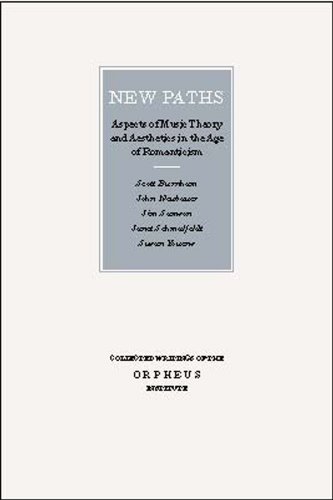

Most ebook files are in PDF format, so you can easily read them using various software such as Foxit Reader or directly on the Google Chrome browser.
Some ebook files are released by publishers in other formats such as .awz, .mobi, .epub, .fb2, etc. You may need to install specific software to read these formats on mobile/PC, such as Calibre.
Please read the tutorial at this link. https://ebooknice.com/page/post?id=faq
We offer FREE conversion to the popular formats you request; however, this may take some time. Therefore, right after payment, please email us, and we will try to provide the service as quickly as possible.
For some exceptional file formats or broken links (if any), please refrain from opening any disputes. Instead, email us first, and we will try to assist within a maximum of 6 hours.
EbookNice Team

Status:
Available5.0
20 reviewsIn New Paths, five renowned scholars discuss a variety of topics related to Romanticism, focusing especially on the years 1800–1840. In a much-needed historical and critical overview of the concept of organicism, John Neubauer ranges from its origins in Enlightenment biology to its aftermath in postmodernism. Janet Schmalfeldt shows that not only Beethoven's op.47 should be called the Bridgetower rather than the Kreutzer Sonata but also that this makes a difference as to its meaning. Scott Burnham explains extreme contrasts between emotional and mechanical types of music in late Beethoven as stagings of the limits of human subjectivity. Jim Samson discusses Chopin's little-known musical upbringing in Warsaw, arguing that his grounding in eighteenth-century aesthetics (as opposed to theory) has thus far been neglected. Finally, Susan Youens's case study of Franz Lachner's Heine songs sheds light on radical experimentation by a so-called epigone in the period between Schubert and Schumann's miracle song year.
Contributors: Scott Burnham, Princeton University; John Neubauer, University of Amsterdam; Jim Samson, Royal Holloway, University of London; Janet Schmalfeldt, Tufts University; Susan Youens, University of Notre Dame